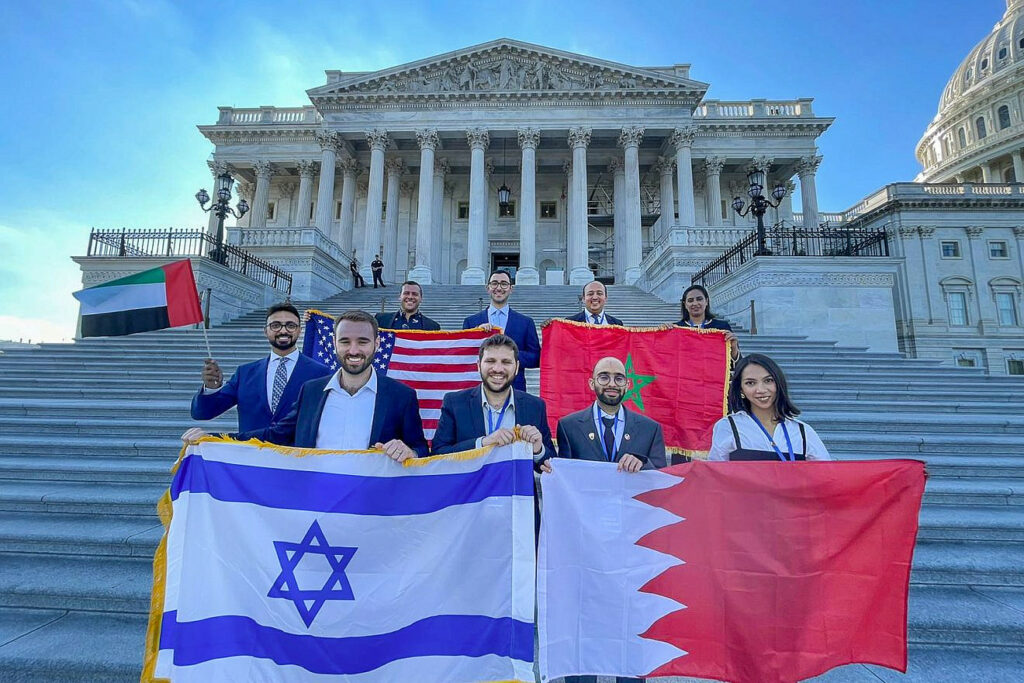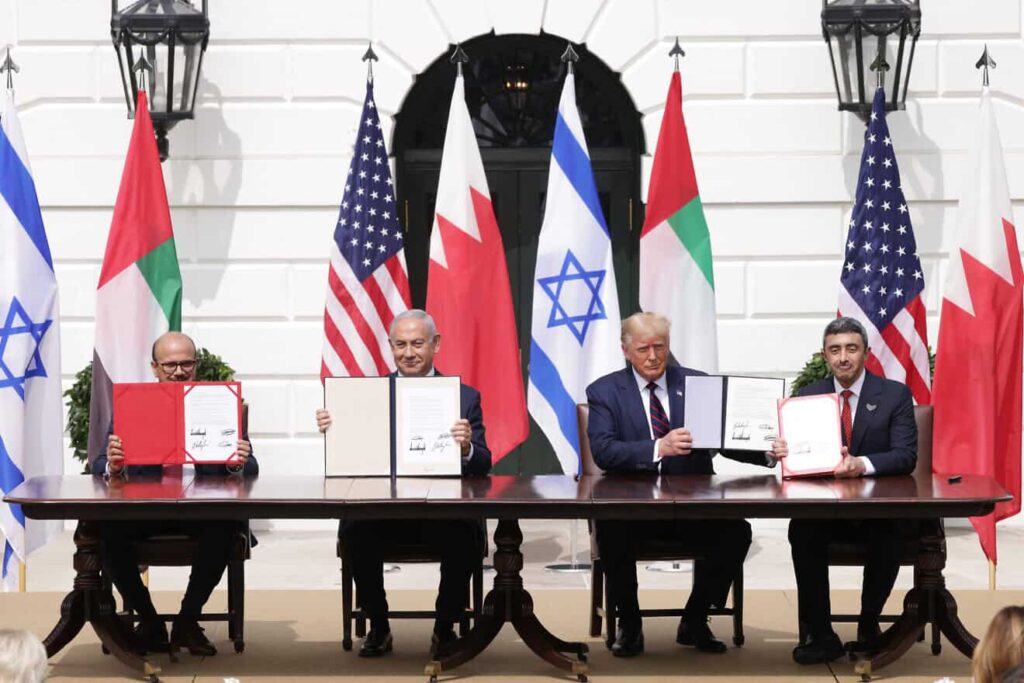
Four years later, the Abraham Accords are still the solution to Mideast stability
More signees to the agreement can provide a credible deterrence against Iranian hegemony.
This past Sunday marked the fourth anniversary of the Abraham Accords, signed by Israel, the United Arab Emirates, Bahrain, Morocco and Sudan. They stand as a powerful symbol of regional cooperation and peacebuilding in a region rife with conflict, especially now.
When the U.S.-brokered Accords were first signed in 2020, they signaled a tectonic shift towards regional security and prosperity. On last year’s anniversary, Heather Johnston, the founder and CEO of the U.S. Israel Education Association, wrote that “normalization among the Abraham Accords countries has already delivered hope to a region wrought with instability, opening a watershed of economic, diplomatic, trade, tourism, tech and medical collaborative opportunities.”
No one could have predicted the events that unfolded on Oct. 7. Today, the escalation of violence in the Israel-Hamas conflict has raised questions about the effectiveness of these agreements in promoting peace. Indeed, the accords have encountered their first major test.
But among all the skepticism, not one of the signatory nations withdrew from the accords in the aftermath of Oct. 7. In fact, an Israeli trucking company struck a deal to transport goods from the UAE and Bahrain to Israel via Saudi highways to bypass the Houthi terror on the shipping lanes in the Red Sea.

Beyond the enduring economic ties, these countries represent a strategic geopolitical alliance capable of countering the growing influence of Iran. Iran has long been the ringleader of terror across the Middle East, directly funding and arming proxies that target both Israel and Western interests. Groups like Hezbollah, Hamas and the Houthis operate under the direction of the Iranian regime.
Building and expanding the accords would be the countering balance of power in the region, with an emphasis on mutual security. This type of defense partnership was on display the night of April 14 when Emirati, Jordanian and Israeli militaries reportedly cooperated to intercept Iranian drones and cruise missiles targeting Israel. With all Middle Eastern countries under the threat of Tehran, now is the perfect time to continue strengthening the Abraham Accords by adding more nations to the coalition, along with Egypt and Jordan, which already have longstanding peace agreements with Israel. This would create a united front that can curb Iran’s disruptive influence, deter future military threats and further economic prosperity for the allying nations.
Saudi Arabia and Oman are believed to be the next countries in line for an agreement. We already know of an American push for an Israel-Saudi normalization deal. The match makes perfect sense considering both nations’ ties to the United States, the economic potential and the obvious defense incentive. Any future normalization deal should occur under the banner and auspices of the Abraham Accords. It would add strength and credibility to a unified Arab-Israeli alliance.
In addition to solidifying relationships with key players in the Mideast, expansion efforts could also include countries like Indonesia, one of the most populous Muslim nations in the world.

I have been in countless meetings with American and Israeli government leaders, as well as Abraham Accords framers and signatories. One message consistently resonates: The region desires a counterweight to Iranian dominance, and this agreement can provide a credible deterrence against Iranian hegemony in the Middle East. Those same leaders emphasize American backing and commitment as a necessary precondition.
Washington must play a leading role in brokering and expanding these agreements, and we are uniquely positioned to do so. By enhancing trade ties, investing in joint defense initiatives and encouraging technological collaboration—see U.S.-Israel Free Trade Agreement, Iron Dome and the BIRD Foundation as examples—America can solidify the commitment of current signatories and attract new partners. This will serve U.S. national security interests as well. Ultimately, the Abraham Accords are the best shot at creating a future where the Middle East can experience peace and stability. The United States can leverage its influence to ensure that nations tempted by Iranian influence see the accords as a promising alternative to safeguard long-term regional security and prosperity. Expanding them and bringing more nations into the fold will create a lasting legacy of cooperation and resilience in the face of ongoing and emerging threats.
The post Four years later, the Abraham Accords are still the solution to Mideast stability appeared first on Israel365 News.
Israel in the News